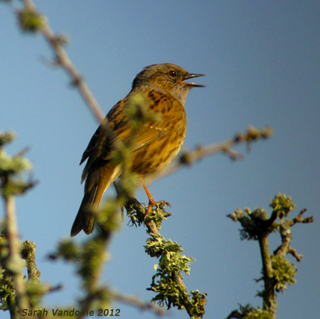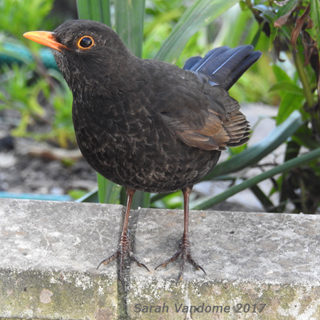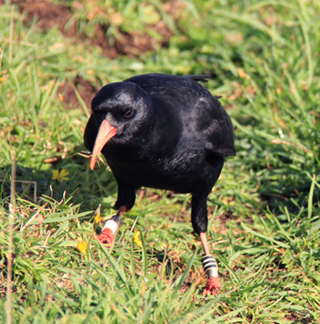 The dawn chorus of birdsong is one of nature’s arresting and breathtaking occurrences. David Hall explains why you really should consider rising early to experience this incredible phenomenon at this time of the year.
The dawn chorus of birdsong is one of nature’s arresting and breathtaking occurrences. David Hall explains why you really should consider rising early to experience this incredible phenomenon at this time of the year.
I don’t need an alarm clock at this time of year. My window is left open so I am usually awakened to the symphony of the birds’ dawn chorus, which is particularly strong in May. It is quite amazing! For 30 minutes or so after sunrise most birds reach their crescendo in singing for the whole year, their song carrying some distance, especially on still mornings.
At sunrise birds are penetrative with their song, particularly blackbirds, song thrushes and skylarks. What else can equal the fluty rich phrases of those three in that early part of the day? Each species has its own distinctive breeding song and warning call.
 But why do they do it? Simple! In late April and early May, the male birds, in their resplendent breeding plumage, sing their hearts out as they stake out their territory, warn competing males to keep out or else and attempt to convince females of the species that their song is the best! Does that ring any bells with human behaviour?
But why do they do it? Simple! In late April and early May, the male birds, in their resplendent breeding plumage, sing their hearts out as they stake out their territory, warn competing males to keep out or else and attempt to convince females of the species that their song is the best! Does that ring any bells with human behaviour?
Interestingly the smaller the bird the more melodious it usually is and the perfect example of that is the wren. The larger birds, ducks, geese, swans, gulls, birds of prey, and corvids, except for talkative social group communication, generally do not have active songs. However some of our waders do, particularly the curlew with its plaintive, bubbling call.
 Bird song does not happen all the year round. It ebbs and flows, according to the seasons and breeding behaviour. You may have noticed that bird song became quieter from late summer through into early winter as breeding diminished, feathers moulted and birds were exhausted from bringing up fledglings.
Bird song does not happen all the year round. It ebbs and flows, according to the seasons and breeding behaviour. You may have noticed that bird song became quieter from late summer through into early winter as breeding diminished, feathers moulted and birds were exhausted from bringing up fledglings.
There is still some communication between them though even then but it is muted and short, known as subsong. It brings them together in flocks or small groups to evade predators and occasionally a strident alarm call will warn the others of danger.
But how can you learn to recognise birds by their song? The best way is to watch and listen using a good Collins, Helm or RSPB guide book. However, if you are tech savvy, the easiest way is by purchasing birdsong CDs, either via the RSPB or online retailers on the internet. A really helpful website is www.british-birdsongs.uk where you can listen to up to 250+ bird songs and currently download them as a free app.
Chough news
 For those of you who are following news about our Roseland choughs, and our Wild Roseland symbol, there is still some mystery as to what is going on this year. The Chough Watch team have not yet been able to confirm if we have a breeding pair this year, following various sightings of mainly just one bird. Where two eventually were confirmed in April visiting the breeding area, the sex of both could not be determined and breeding activity was not apparent. There is still time for something to happen, and we certainly hope it will, but gradually that time is running out. We’ll keep you posted!
For those of you who are following news about our Roseland choughs, and our Wild Roseland symbol, there is still some mystery as to what is going on this year. The Chough Watch team have not yet been able to confirm if we have a breeding pair this year, following various sightings of mainly just one bird. Where two eventually were confirmed in April visiting the breeding area, the sex of both could not be determined and breeding activity was not apparent. There is still time for something to happen, and we certainly hope it will, but gradually that time is running out. We’ll keep you posted!
Upcoming Wild Roseland Walks and Talks – dates for your diary
Note that all events are free but a small donation of £3 would be welcomed.
Wildlife on the Farm
Saturday 20th May, 10.00am, Churchtown Farm, Veryan.
A walk led by Mike Harrison.
 Mike has been combining farming for a living and for wildlife for many years, in an area of great nature and landscape value between Veryan and Carne Beach. He will lead a walk around his farm to show what he has done and achieved for wildlife, and the range of farmland and coastal habitats he manages.
Mike has been combining farming for a living and for wildlife for many years, in an area of great nature and landscape value between Veryan and Carne Beach. He will lead a walk around his farm to show what he has done and achieved for wildlife, and the range of farmland and coastal habitats he manages.
Big Seaweed Search
Sunday 25th June, 12.30 at Towan or Porthcurnick beach (to be confirmed)
Led by Chris Townsend.
Seaweed identification walk and practical session as part of the Natural History Museum and Marine Conservation Society’s annual Big Seaweed Search around the country, to gather data on the occurrence and trends of seaweeds. (Numbers limited to 12 so booking required)
Contributors:
David Hall, Sarah Vandome
Edited by Sarah Vandome.
References and links
Enjoy more Roseland wildlife and landscapes – visit Sarah Vandome’s Heart of Roseland Facebook feature:
https://www.facebook.com/HeartOfRoseland?ref=hl

Wild Roseland is a group of volunteers who care passionately about looking after the nature and landscape of the Roseland peninsula in south Cornwall. Through a number of initiatives and projects, the aim is to inspire and enhance the conservation of this special place for all.
